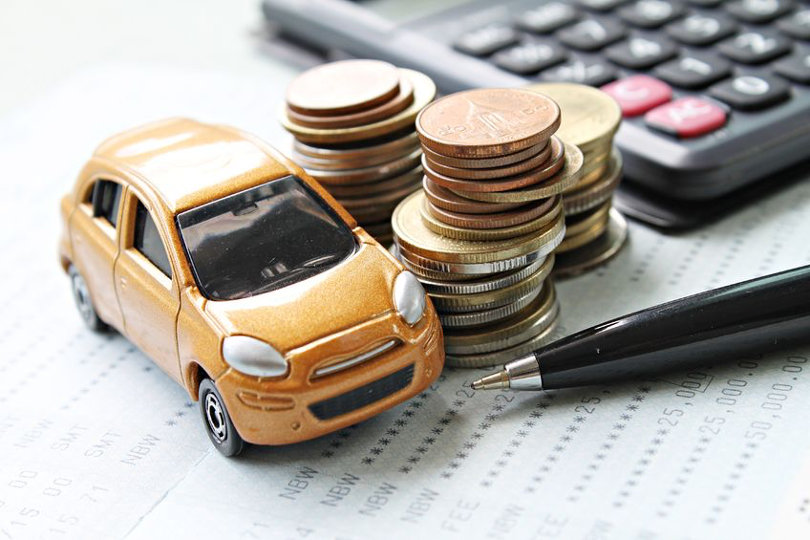Personal Contract Purchase (PCP) is one of the most popular ways to finance a car. There are some misconceptions around PCP and many drivers question whether it’s a cost-effective way to finance your next car. The guide below has been designed to look at PCP agreements in more details, how they work, how they can benefit you and also the factors you should consider before you commit to getting a car through personal contract purchase.
click here – What You Need To Qualify For Series 7 Exam
How Does PCP Work?
Personal Contract Purchase is one of the most flexible forms of car finance and can suit a range of drivers. Due to the structure of PCP car deals, you can benefit from low monthly payments and don’t have to worry about owning the car at the end of the deal. PCP can be most suited to those who want more flexibility to change their car and don’t necessarily want to own the vehicle they have been driving. PCP car deals work in 3 simple steps:
- Apply for finance on the new or used car you want. If accepted, you will agree to pay an initial deposit and make monthly payments to and agreed end term. You will also need to set an annual mileage limit at the start of your agreement.
- Make low monthly payments till the end of your chosen term, usually over 3-5 years. It’s really important that you meet each payment on time and in full or you could lose the car.
- Once all payments have been made and the agreement has ended. You can then choose to hand the car back to the lender and the deal is done. Alternately, if you want to keep the car, you will need to pay the large final payment or the ‘balloon’ payment before you can obtain ownership.
Benefits Of Getting A Car Through PCP:
Lower Monthly Payments
Unlike agreements such as hire purchase, you don’t spread the full cost of the car you choose, instead you make monthly payments to cover the cost of the depreciation. The deprecation is the difference between the value of the car at the start of the agreement and how much it is worth at the end of the deal. This reduces the loan amount and helps make payments much lower than other options. However, this means that when the deal ends, there is still a large payment to be made if you want to keep the car which can usually thousands of pounds to pay. If you want to get a car that you want to own at the end, PCP isn’t the best agreement for you, and you may be more suited to HP or a personal loan.
Get A Newer Car
One of the biggest benefits of getting a car through PCP is that you can get a better car than you first thought. Some of the most expensive cars on the market are electric cars but due to its structure, you could get an electric car on PCP with affordable monthly payments. PCP even makes getting a brand-new car more accessible for many drivers. You can even get lower monthly payments on a new car then you would with a used car on hire purchase. A newer car can give you extra peace of mind with longer warranties, updated safety features and tend to be more reliable.
Suitable For Lower Credit Scores
When car finance first came to the market, it was usually only available to people who had good credit. This is because they are less of a risk to lend to. A bad credit score usually indicated bad financial management, high levels of debt, no previous borrowing history or missed payments in the past. However, car finance agreements such as PCP and HP are secured loans. This means the car belongs to the lender throughout the agreement so if you fail to repay the lender can use the car as collateral and take it off you. PCP can be suited to those with lower credit scores too but it’s always best to improve your credit score first to help get you the best finance rate possible.
click here – Valuable Tips for Homeowners to Leverage Their Property
What To Consider Before Taking Out A PCP Deal:
Whilst PCP car finance is an easy choice for many consumers there are a few factors you could consider first.
- Mileage And Damage Charges. At the start of your agreement, you will be required to set an annual mileage limit an also agree to keep the car in good condition. Dealers use the annual mileage to predict the future value of your vehicle so it’s important that you set it accurately. If you exceed the mileage or hand the car back in a state which goes beyond general wear and tear, you can have additional charges to pay at the end of the deal.
- Cancelling Your Agreement Early Can Be Costly. No matter which type of car finance agreement you have, you can cancel your agreement early through voluntary termination. There are many reasons why your circumstances may change, and you may need to end your car finance deal early but opting out of a PCP deal before the agreement ended may not be very cost effective. If you’ve paid off 50% of the agreed total amount, you can cancel your agreement early. However, if you haven’t, you will need to pay the difference and with the large balloon payment included this can be costly.
- No Deposit Refunds. When you apply for PCP finance, you can choose to put down a deposit or not. However, putting more down for your agreement can help to reduce the loan amount. Unlike other finance agreements though, you won’t get any of your initial deposit back.
